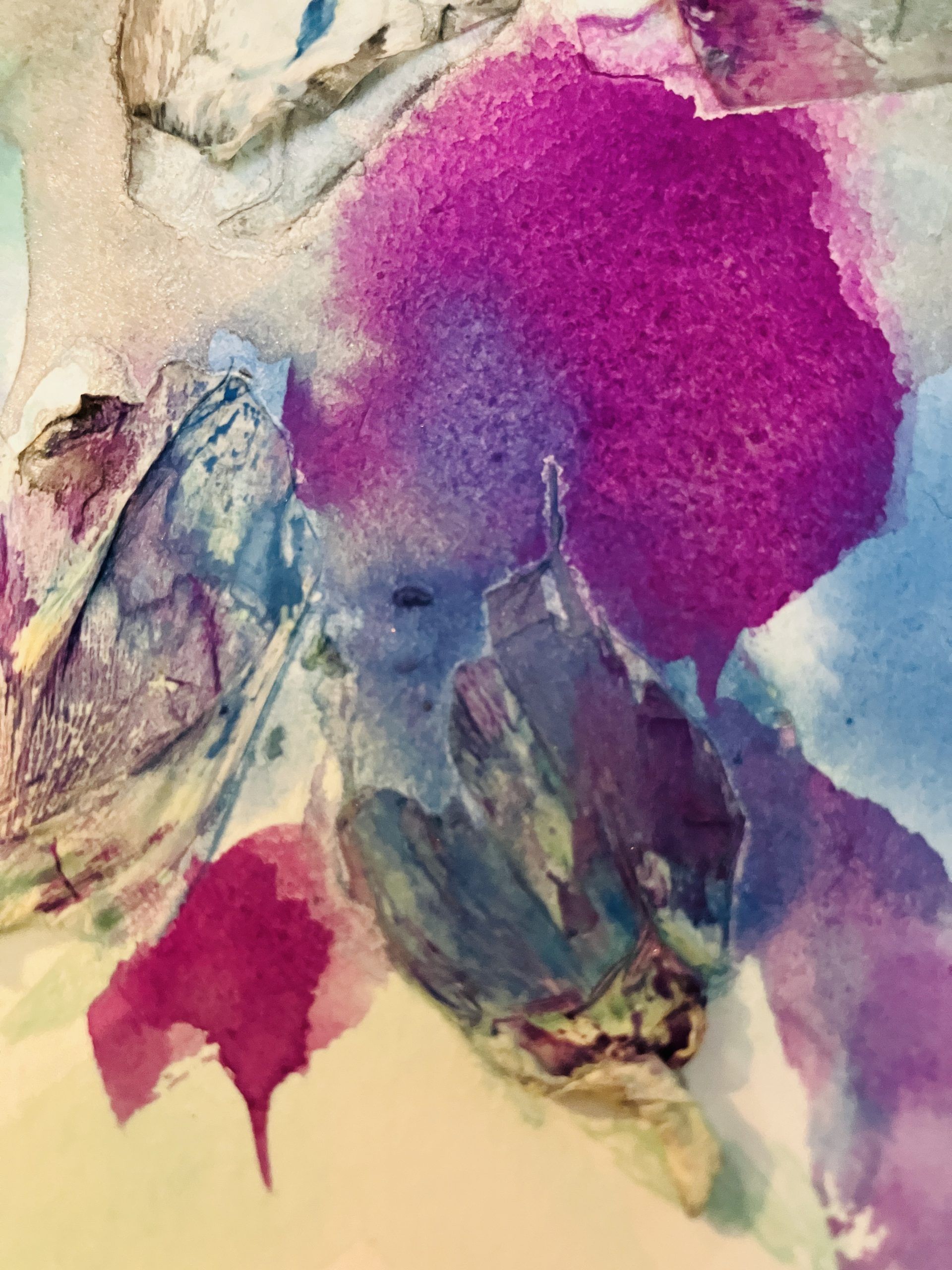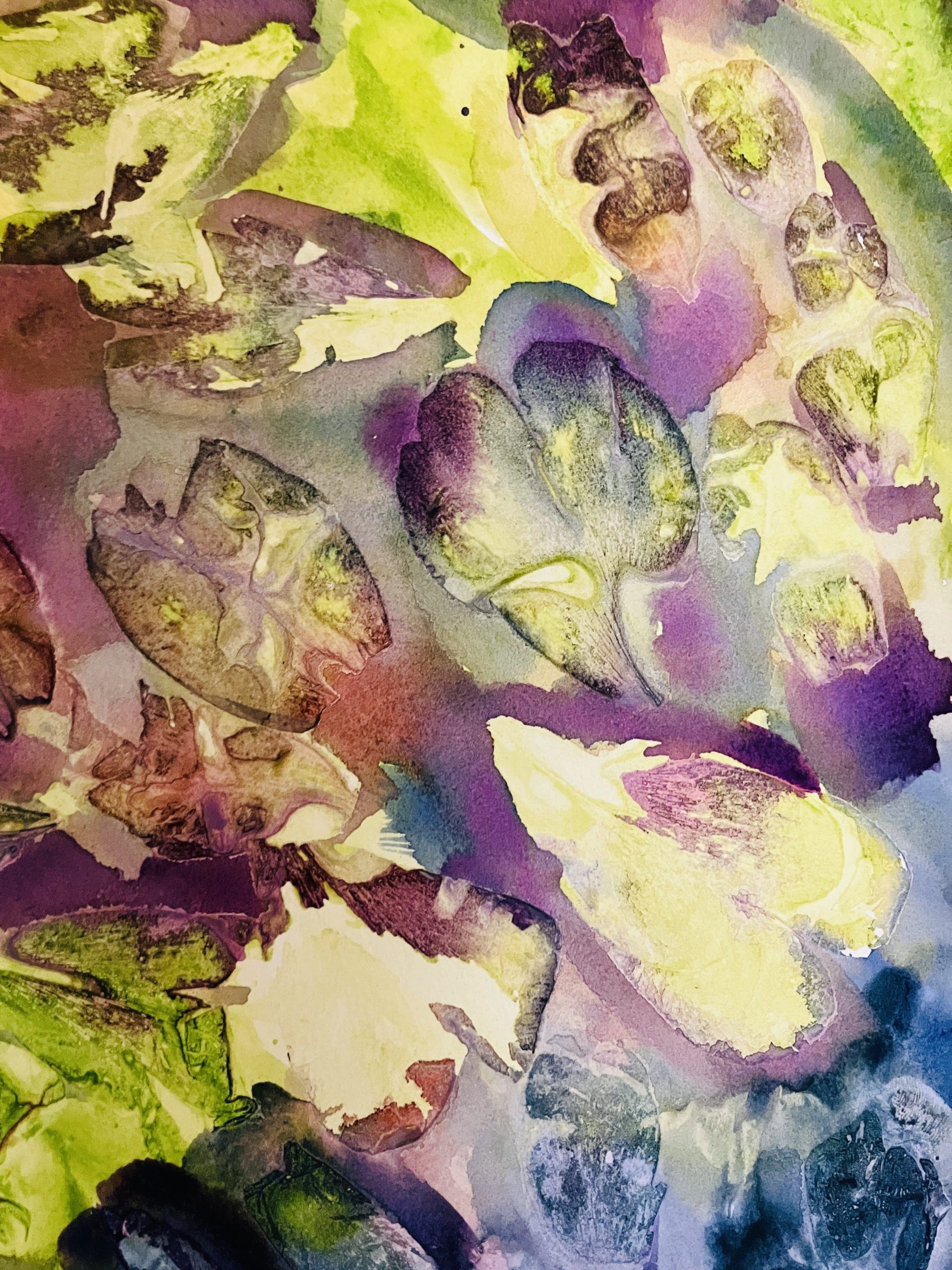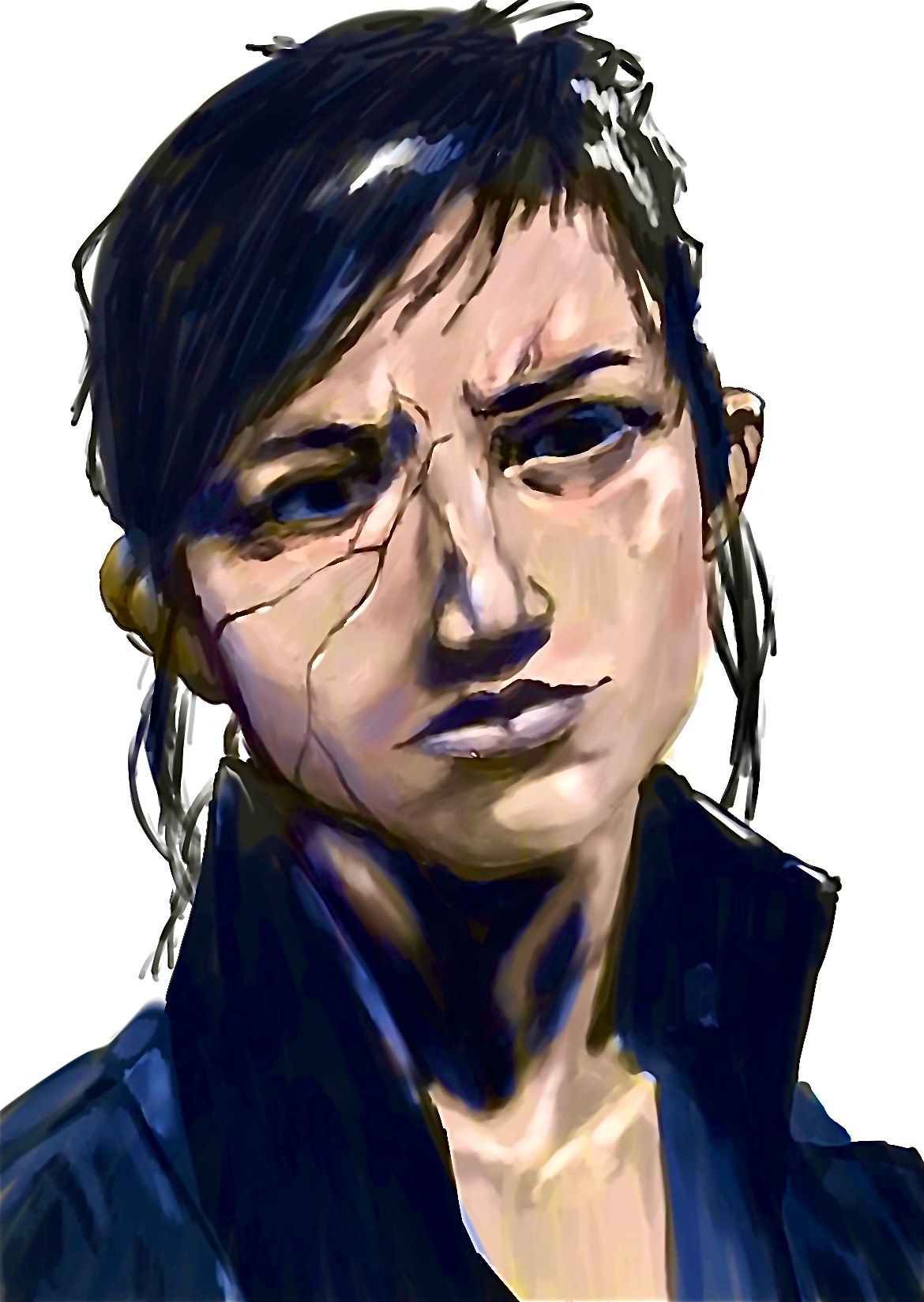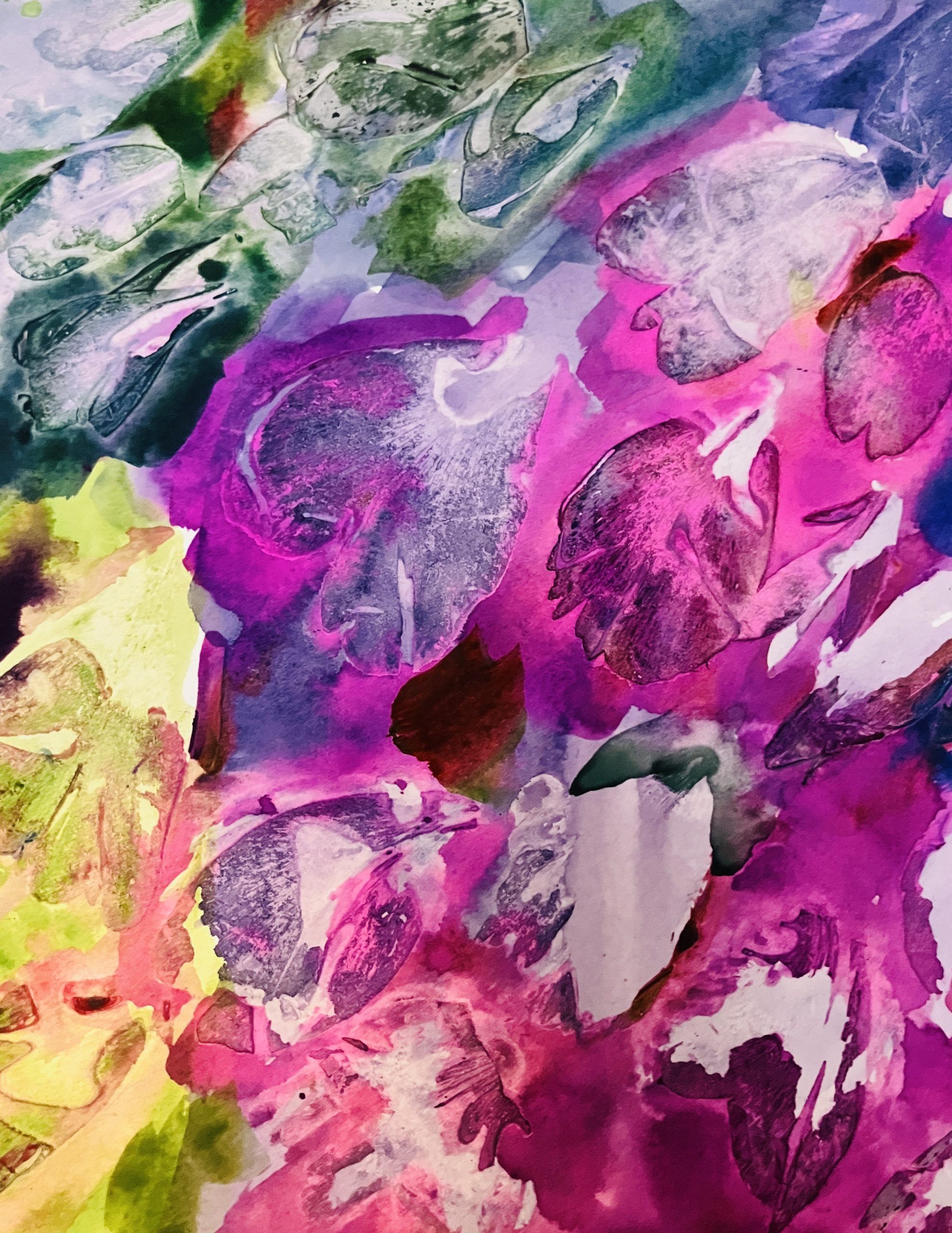Poetry

Crabs and Pines
When we moved here, the crab
tree flowered like a sculpted ball
on a stick, and the contorted pine
seemed straight out of Horton-ville.
We have pruners; we don’t use
them much. Fourteen years,
and the crab pokes at the sun
porch roof, autumn star clematis
winds through her branches,
the contorted pine bends
his back, thrusts his arms into the crab
canopy, peering through the foliage
like a professor, searching for tree
frogs who begin chirping at dusk.

Call to Dinner
The woman’s body moves
through the kitchen,
calls others wordlessly to dinner,
like the boy daydreaming by the brown pond,
with dusk coming on,
examining a tiny leaf
as if he’s grasping the whole tree,
and the little girl running
through the field
before darkness snatches the ground out
from under her
and the older boy
rubbing the fine long head
of his mule,
his face full of farm smudges
and the farmer himself,
dragging his body home
like an old wagon,
while the boy makes
a sudden grab for a frog
with his net
and the girl bursts through the gate
as the older boy considers
all that will be his some day
though at night, he knows.
it belongs to the moon and stars
and she stares out the window
at her flock coming together
in the last cringe of daylight,
praying one doesn’t bring a frog home
and a second doesn’t fall
and bruise her knee
and a third is sure that the life
laid out for him
is really the one he wants
and a fourth
who knows nothing but the land,
who may as well have been
found one day in its rich, vital soil
like Moses in the bulrushes
than born in some hospital,
who’s seldom seen
without some implement in his hand
or in the saddle of a tractor,
for this is her canvas
and she has nothing else to compare it to,
and yet, in the sinking sun,
it still rivets her attention,
in her weathered heart,
it bears up all needs,
and her mind, that soundless bell
tolls this family back to her,
in these relentless darker shades of day.

Daughter of Slovakia
She wore a bright
blue apron and
faded red
handkerchief
in her hair.
She fed the chickens
on a dusty field
outside Bratislava.
As the hot sun
beat down upon
her, she wiped
her brow.
She walked to the
village every day to
buy a fresh loaf
of bread to feed
her family.
In the evening, she
drank plum brandy
and danced to
jubilant folk
music with her
husband.
The lines around
her eyes creased
when she smiled.
She laughed a
hearty laugh.
Her eyes twinkled
with mischief and
with unspoken
dreams.

Faith in Flying
These unusual days, people driving or walking or talking are grating
my nerves: tiny brittle petals of me, littered. Pink. At home, I crochet
these bits into a shapeless sweater. But it’s not smooth. It’s seedy.
Nothing lays flat. I put on my wings, instead, hedged
by the cliffs around me. Flying is a trick
we can all learn. Take a deep breath, let go
enough so the tips of your toes dance on air.
Fly past me. Fly past you. We can all fly, Fran says,
when we don’t think about what we are doing. Do you
believe her? Does it matter? It’s the soaring that counts, the way
what we cling to flutters behind us creating kaleidoscope messages.
Furnishings
Sheepish bloat of a furniture store at night, items
faintly illumined through
the glass displaying the square footage it takes
to suggest arrangements
we can make in our pleasantly enclosed lives.
Starfish of ceiling fans, thrones
of headboards, wooden dining tables holding forth
for flocks of prim parsons chairs.
And this vehicle a vestibule for the body,
a house for aching
bones, a chamber for whatever nimble soul
may be a part of the deal.
In an airy, ancient apartment in Boston
I’ve lain with a girl I knew
I wouldn’t stay with, have seen how much
that silence can say.
The room was lovely, too. Plush king bed, gray
linen comforter, a surplus
of natural light, sensual postmodern canvases,
a sculpture of a tree in the corner.
I am still wandering streetlight-stained highways
while a furnished home beckons,
am still exhuming and examining the past,
listless, listening.